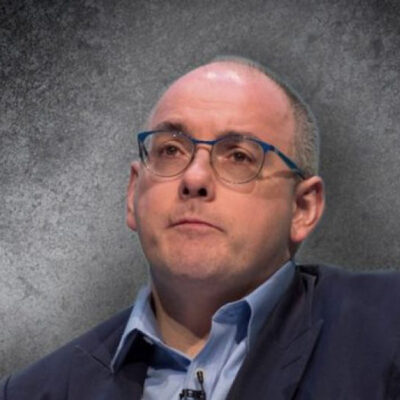Closures, recruitment struggles and low performance: even Michael Gove who gave university technical colleges the green light while education secretary said they haven’t worked.
But, Baker Dearing Trust chief executive Simon Connell tells Billy Camden things are looking up – with new ones on the horizon and plans afoot for new ‘UTC sleeves’…
Since their introduction in 2010, university technical colleges have struggled – so much so that Michael Gove, the then education secretary who gave them the green light, said the schools for 14- to 19-year-olds had just not worked out.
The evidence backed that up. In 2017, when Gove delivered his verdict, more than half of UTCs inspected by Ofsted were rated ‘inadequate’ or ‘requires improvement’.
Low student recruitment left some financially unviable. The National Audit Office found that deficits had doubled across UTCs in an investigation report published in 2019. Almost £800 million of public money had been spent on the programme.
Twelve have closed, leaving just 47 open.
But the Baker Dearing Trust – the organisation that promotes UTCs – takes a different view.
Chief executive Simon Connell says the “latest evidence points to us going in the right direction. That’s not to say it’s perfect, but if you look at current Ofsted outcomes, student recruitment, if you look at destinations, broadly things are positive”.
Connell says UTC aggregate enrolment rose 8 per cent to 18,736 students this year. And latest Ofsted data shows 78 per cent of the colleges are rated ‘good’ or ‘outstanding’ with none ‘inadequate’.
Poor-performing UTCs get Ofsted grades wiped
What he doesn’t point out is those poor-performing UTCs were given a fresh start with their Ofsted grades wiped after joining a multi-academy trust.
He wants every UTC to be Ofsted ‘good’ or ‘outstanding’ by 2025, saying there is “no excuse for that not happening”.
But the picture on recruitment is still worrying. Analysis by sister title FE Week found while five are oversubscribed, more than half are still less than two-thirds full (the capacity that Connell says is needed to be financially viable).
Four UTCs even have less than 20 per cent full, according to the latest data published on the government’s Get Information About Schools website.
But Connell is not worried about any more going under, claiming that mechanisms are now in place to keep struggling UTCs afloat – because of multi-academy trusts (MATs).
Seven in 10 UTCs are in MATs – a move favoured by ministers and, despite initially resisting it, the Baker Dearing Trust which began to encourage the process in 2019 to enable the colleges to survive.
“I see the value in UTCs being part of MATs, being part of the local education landscape, having the expertise and the credibility of a new offer within an established group of schools,” Connell says.
“It helps shore up their finances. We’ve seen examples of acceleration in student recruitment. I’m confident with some of those that needed to join MATs, that need to improve their recruitment, that that will happen.”
Technical colleges start recruiting at 11
In addition to MAT mergers, almost four in 10 UTCs have lowered their age range from the traditional 14 to 19 model. Six now recruit from year 7 while 12 recruit from year 9.
So are these schools even UTCs any more?
Connell said the year 9 recruitment model is a “minor tweak” that allows young people to settle in before starting their GCSEs in year 10 and can make “quite a bit of difference”.

But he believes UTCs have “exhausted” the year 7 model and doesn’t think any more will go down this route.
He says because of this, plus the tens of millions of pounds of “transitional funding” from government to clear their debts, the financial picture of UTCs nationally is much healthier than three years ago at the time of the NAO’s report.
While Connell doesn’t go as far as claiming the current crop of UTCs are “among the most successful state schools in the country”, like Lord Baker said in The Times this week, he says the “facts show” they are on an upward trajectory.
Plus, at the encouragement of the Department for Education, bids for three brand new colleges have gone into the latest wave of free school applications.
Connell said the bids will be in “areas that government will be interested in”, hinting at the 55 education investment areas identified in ministers’ levelling up plans. But has few more details.
Lack of capital funding hampers growth
He hopes at least one will be successful, but barriers include the government having no money for capital and numbers of pupils in secondary schools set to fall after peaking in 2024.
The last time bids for new UTCs were submitted was 2019, but all three applications were rejected.
One beacon of hope this time around is the reappointment of Robert Halfon as skills minister – a UTC fanboy who has repeatedly spoken of his desire to open one in every town.
Connell also says setting up UTC “sleeves” in schools provides an alternative way to grow – a model first put to ministers last year.

Halfon said at the Conservative Party conference in October they were an “exciting concept”, which would “help mitigate the higher costs of building new facilities” and “firmly embed vocational education alongside traditional academic learning”.
The model would involve a secondary school offering the technical education curriculum, including T-levels, used in UTCs alongside their usual academic pathway, developed with the help of an employer board. Students would enter the sleeve at age 14 and leave at 19, like a normal UTC.
Connell says 12 schools have contacted him over the past year to express an interest in piloting the sleeves.
One has already opened – but not as originally intended. Struggling Bristol Technology and Engineering Academy was taken over by Abbeywood School, located next door, in September. But Connell says schools would ideally open up mini-UTCs in their schools from scratch.















Your thoughts